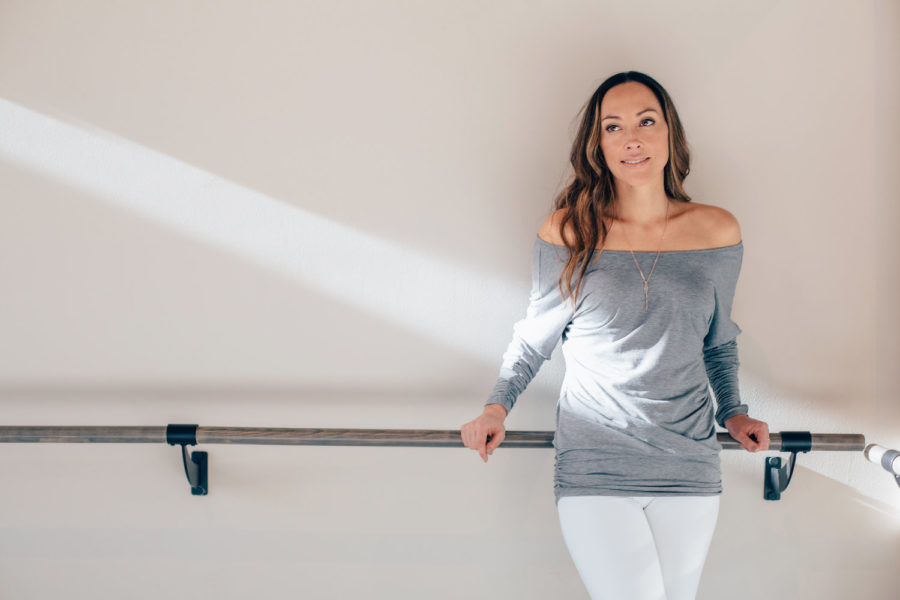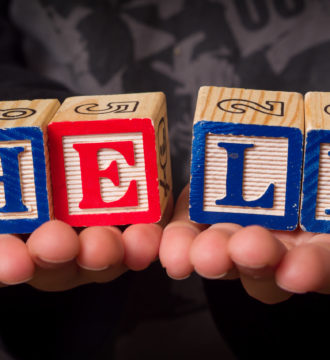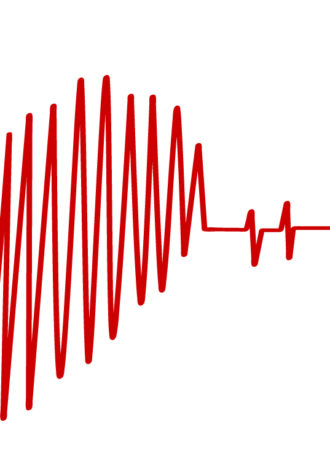Although cardiovascular diseases are common among women, the profile of a survivor is still misunderstood. Those who suffer from cardiovascular disease aren’t always who you would expect. They may be young or physically active, but there could be other underlying factors that contribute to their condition. These local women are sharing their stories to spread awareness and possibly save lives.
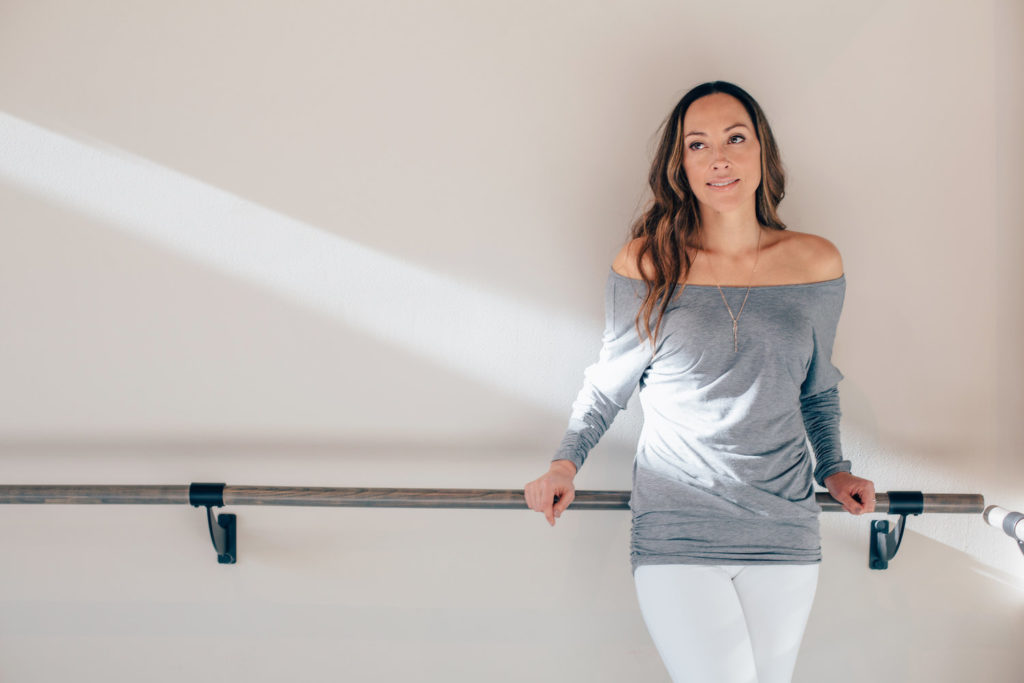
Photo courtesy of Jessica Diaz
Jessica Diaz didn’t think she could have a stroke at such a young age
Diaz, a mother of two, has been practicing barre fitness since 2003 and has worked as an instructor since 2012. However, in 2013, at age 36, Diaz suffered a minor stroke, although she didn’t know it at the time.
“I didn’t even know I was eligible for a stroke,” she tells Exhale. “I thought they only happen to older, unhealthy people.”
After experiencing numbness down the left side of her body one day, Diaz called her primary care doctor, who recognized the symptoms and urged her to seek immediate emergency care. Diaz went, although skeptical that it was a stroke.
An MRI confirmed it was a minor stroke and further testing showed it was caused by a small hole in Diaz’s heart, called patent foramen ovale. Her doctors concluded that a blood clot had gone through the PFO and to her brain.
A cardiologist, hematologist, and neurologist all recommended that Diaz undergo surgery to close the hole in her heart. The surgery was a success, but “once you’ve had a stroke, you are at higher risk for another one,” says Diaz.
In retrospect, Diaz feels lucky that she sought out medical attention so soon after experiencing the symptoms. Her doctor told her that a massive stroke could only have been a week away.
“What I’ve learned from talking to other survivors is that a lot of them have ignored the warning signs,” says Diaz. “You feel unusual and you convince yourself otherwise because you have these responsibilities and kids to take care of.”
Before my stroke, the way I looked at my health was based on weight loss, but there is so much more to it.
Now a spokesperson for the American Heart Association, Diaz says she feels especially lucky that her ambulance took her to the nearest hospital, which happened to be Mass General Hospital in Boston, an AHA-accredited facility.
Having experienced a stroke, Diaz is focused on preventive care, and she has made some lifestyle changes as well as mindset changes for her health.
“Before my stroke, the way I looked at my health was based on weight loss, but there is so much more to it,” she says.
“You’re never too young to think about your long-term health,” she adds.
Diaz cut out processed foods and ate other foods in moderation. “I was never overweight, but I was going through a bottle of olive oil a week,” she admits. “I have more awareness of what I’m putting into my body.”
Diaz says she also continues to keep track of her health numbers: her cholesterol, blood pressure, and blood sugar levels.
“These things can go undetected, especially with seemingly healthy people. You yourself should track your numbers,” she says. “It’s easier to manage an inching cholesterol [number] rather than a huge jump, and by that point, your doctor will put you on heavy medication.”
Diaz continues to tell her story, knowing there might be more women out there who are at risk but are unaware.
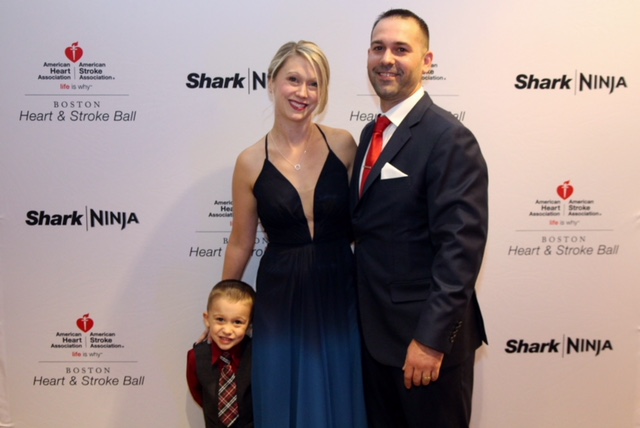
Photo courtesy of the American Heart Association
Ashley Lucchese with husband Joe and their 3-year-old son, Connor, at the
American Heart Association Heart & Stroke Ball in Boston
In March 2017, Lucchese, age 33, was at work when she suddenly felt lightheaded and dizzy. Within seconds she was on the floor, unconscious in cardiac arrest. A co-worker started performing CPR. Coincidently, just days before, Lucchese and her co-workers were trained in CPR by the American Heart Association.
When she arrived at the hospital, Lucchese had some electric activity in her heart but no pulse. After 30 minutes, doctors were able to revive her and get her pulse back.
I was in a coma for six days, I was not expected to live at all.
After waking up from a coma, “it took a while for me to accept what happened,” Lucchese tells Exhale.
Doctors placed a defibrillator in her chest to restart her heart in case of future cardiac arrest.
“With cardiac arrest, it can happen to anyone; it’s not caused by clogged arteries like a heart attack,” says Lucchese. Her doctors have not been able to identify the exact underlying cause of her cardiac event.
Lucchese was healthy before her cardiac arrest; she regularly went running and ate a healthy diet. She attributes having taken care of herself before the event for her quick and miraculous recovery.
“I was in a coma for six days, I was not expected to live at all,” she says.
As a mother of a 3-year-old boy, Lucchese says, “Connor is my life and I fought for him. No kid should grow up without their mom.”
Currently, Lucchese continues to spread the word about the importance of taking care of yourself, as well as the importance of CPR training. “It makes a difference; it saved my life,” she says.
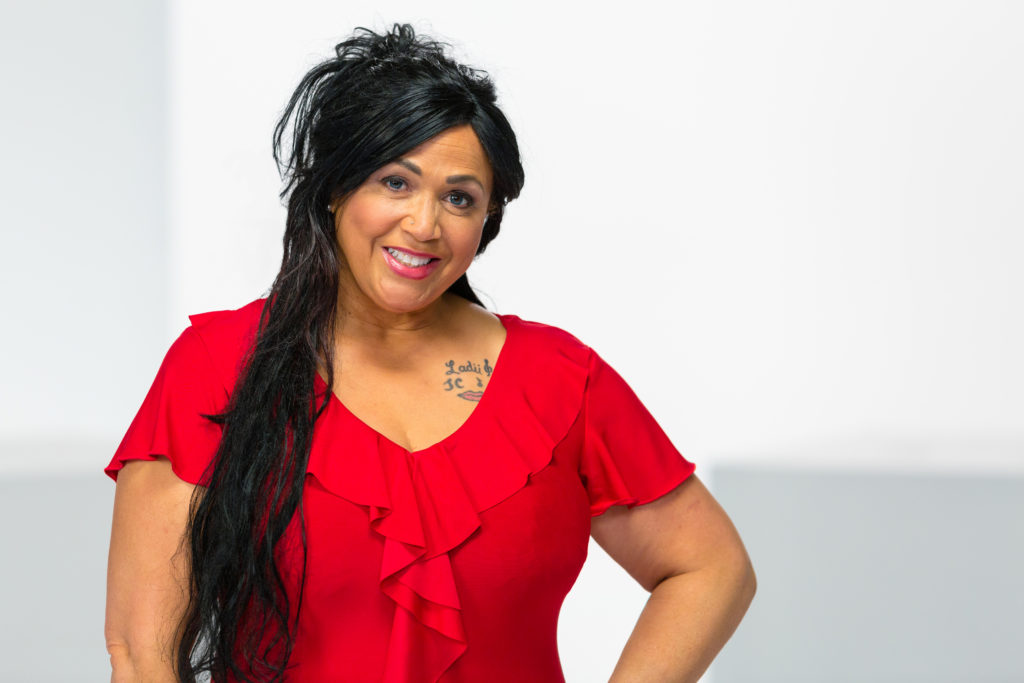
Photo courtesy of the American Heart Association
Theresa Eckstein made major lifestyle changes after being diagnosed with heart disease and type 2 diabetes
Theresa “TC” Eckstein was 40 when she was diagnosed with congestive heart failure and cardiomyopathy, a heart muscle disease that makes it harder for your heart to pump blood. Common symptoms include shortness of breath, a persistent cough, the buildup of fluid in the body (swelling in the feet and abdomen, for example), and fatigue. In 2009, doctors implanted a defibrillator.
But it wasn’t until she was diagnosed with type 2 diabetes a decade later that Eckstein found the courage to make significant lifestyle changes to help protect her heart health.
It’s a big struggle to get going each day, but it’s getting easier. You can’t afford to not care for yourself.
Her diagnosis motivated others in her family to act after years of ignoring their family history of heart disease. In addition to family history, doctors also found evidence that her heart had been damaged by undiagnosed rheumatic fever as a child.
After her type 2 diabetes diagnosis, Eckstein worked with a nutritionist to overhaul her diet and manage her blood sugar, moving away from the fried, rich foods she grew up on, cutting back on sugar and sodium, and adding more fruits and vegetables. She also began an exercise regimen, lifting light weights and walking.
“It’s a big struggle to get going each day, but it’s getting easier,” she says. “You can’t afford to not care for yourself.”
Cardiovascular disease causes one in three deaths among women each year—more than all cancers combined, according to the American Heart Association. And contrary to common belief, it’s not just older women who are affected. While the statistics can be scary, fortunately 80 percent of cardiac and stroke events can be prevented with education and a healthy lifestyle. Here’s what you need to know to take care of your body for the long term.
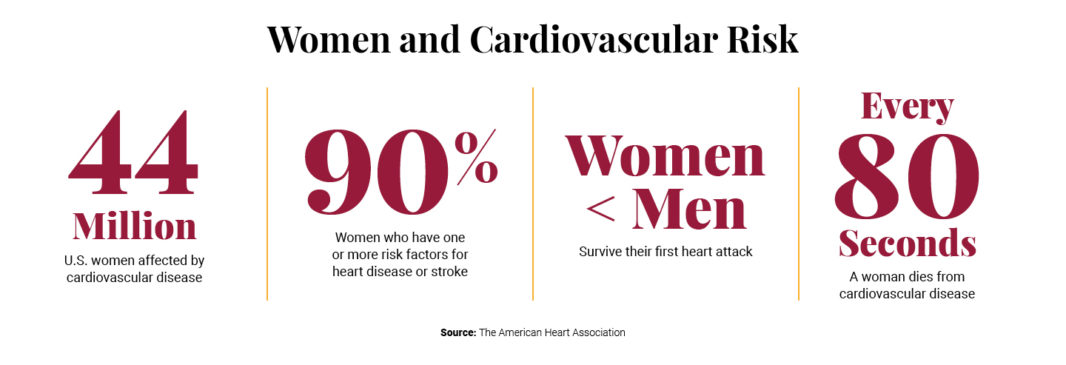



 6 min read
6 min read